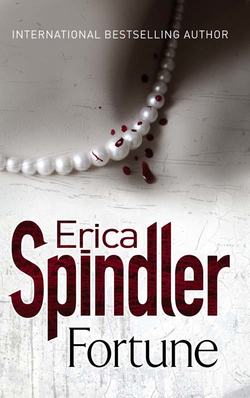Читать книгу Fortune - Erica Spindler, Erica Spindler - Страница 11
Chapter Three
ОглавлениеLancaster County, Pennsylvania,1983
The countryside gently rolled. It was lush and green and fertile. Nineteenth-century farmhouses nestled amidst those rolling hills; corn silos and windmills dotted the landscape, horse-drawn buggies the roads.
It was picturesque. Quaint and beautiful. Every day tourists flocked to Lancaster County to soak up the atmosphere and to relive—if only for an hour or two—the ways of an earlier century.
Seventeen-year-old Chance McCord had experienced all of living in the nineteenth century that he could stand. Quaint and picturesque made him want to puke. He feared if he spent one more day in this all-for-one, one-for-all, plain-ways hell, he would go completely, fucking out of his mind.
Chance strode across his sparsely furnished bedroom to the open window, stopping before it and gazing out at the evening. He wanted to wear his blue jeans. He wanted to listen to rock’n’roll and watch TV. He wanted to hang out with his friends—hell, or anyone else who thought and felt as he did. Dear God, he even longed for school. The Amish didn’t believe in schooling for children his age. By sixteen, Amish children were fulfilling their duty to the family and community by working on the farm. He had been fulfilling his duty for a year now; damn but he hated cows.
Chance braced his hands on the windowsill and breathed in the mild, evening air. A year ago he wouldn’t have believed it possible to long for the big, rambling high school in north L.A. where he had always thought of himself as a prisoner. He wouldn’t have believed it possible to wish to be sitting in first-period English with old man Waterson droning on about some poet who had died long before the birth of the electric guitar.
Now, Chance knew what it was to be a prisoner.
If he didn’t escape, he would shrivel up and die.
It wasn’t that his aunt Rebecca—his mother’s sister—or her husband, Jacob, were bad people. Quite the contrary, they were good ones—to a fault. They had taken him in when his mother had died and his wealthy father—if Chance could even call him that, he had never even acknowledged his existence—had refused to take him. They had made room for him in this house, though with four children of their own it hadn’t been easy.
And it wasn’t that they hated him, though it often felt like it. They simply had their beliefs, and those beliefs were ironclad. They expected him to believe, and live, as they did.
He couldn’t do that. It wasn’t in him.
Chance began to pace, feeling as he often did, like a caged animal. They had buggied to town today, he, Uncle Jacob and Samuel, his aunt and uncle’s ten-year-old son. There, Chance had seen it. A traveling carnival, complete with a Ferris wheel and a fortune-teller. A traveling show, the kind whose troupe went from town to town, the kind of show Chance didn’t even know existed anymore.
An opportunity, he’d thought. Maybe.
While Jacob had been completing his business, he had looked it over, taking Samuel with him. When Jacob found them, he had been furious, though he hadn’t raised his voice. The things he had said to Chance had hurt, though Chance had hidden it; the things his uncle had left unsaid, the way he had looked at Chance, had cut him to his core.
Later, Chance had heard his aunt and her husband arguing.
Chance crossed to the window, looking toward town. In the distance he could see the faint glow of the carnival’s neon light. Frustration balled in the pit of his gut. Regret with it. He had brought tension to this house, had brought friction—between his aunt and her husband, between the children and their parents, the family and a community that didn’t like or trust outsiders.
He was an outsider here.
He always would be.
Chance rested his forehead against the windowsill, thinking of freedom, thinking of traveling from town to town with no one telling him what he could think or how he should act.
A traveling show. An opportunity. A way out.
His heart began to pound. He didn’t fit in here, he never would. The feeling wasn’t a new one; he had never fit in, had always been an outsider, even with his mother in L.A. But he had big plans, dreams that he intended to make reality.
His mother. As always when he thought of her, her image filled his head. He pictured her pretty face and smile, remembered the faraway look she so often had, recalled her habit of staring into the distance just over his right shoulder. With her image came a tightness to his chest, a pinch, an ache. Chance fisted his fingers against the smooth, cool glass. Connie McCord had longed for so many things, things life had kept beyond her reach, things death had denied her ever obtaining.
They wouldn’t remain beyond his reach. He knew what he wanted, what he needed and deserved. He would grab it with both hands. He would not end up like his mother, always disappointed and unfulfilled, always on the outside looking in.
He would not die without having obtained all that he desired.
Chance swung away from the window. He would make his dreams a reality. Starting now, this moment. Somehow, he would find a way.
A traveling show. The chance, the opportunity he had been waiting for.
The time had come to go.
